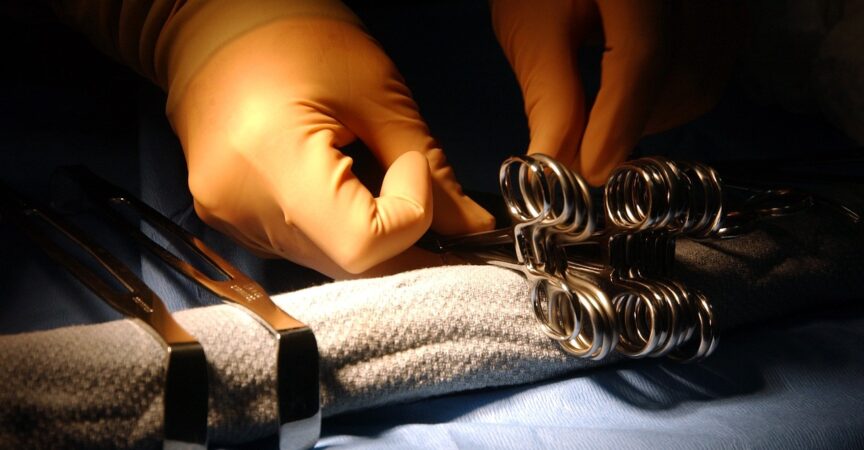How Many Minutes Should a Surgical Scrub Last
Surgical scrubbing is an essential step in maintaining sterility during surgical procedures. It involves the thorough cleaning and disinfection of the hands and forearms of the surgical team to reduce the risk of infection. The length of time for a surgical scrub is an important factor that determines its effectiveness. In this blog post, we will explore the recommended length of time for a surgical scrub, the steps involved, and some tips for performing an effective scrub.
The Recommended Length of Time for a Surgical Scrub
The recommended length of time for a surgical scrub varies depending on the guidelines of different organizations. However, most guidelines suggest that a surgical scrub should last for at least 2-6 minutes. The Association of periOperative Registered Nurses (AORN) recommends a minimum scrub time of 2 minutes for a basic scrub and 3-5 minutes for an extended surgical scrub.
The World Health Organization (WHO) recommends a minimum scrub time of 3 minutes for an antiseptic hand rub or surgical scrub. According to the Centers for Disease Control and Prevention (CDC), a surgical scrub should last for at least 2-6 minutes.
Factors Affecting the Length of Time for a Surgical Scrub
Several factors can affect the length of time for a surgical scrub, including the type of surgical scrub, the degree of contamination, and the type of surgical procedure.
Type of Surgical Scrub: The length of time for a surgical scrub may vary depending on the type of surgical scrub used. There are two types of surgical scrubs: traditional scrub and waterless scrub. Traditional surgical scrub involves using a surgical scrub brush and antimicrobial soap to clean the hands and forearms. The length of time for a traditional surgical scrub is usually longer than that of a waterless scrub. Waterless surgical scrub involves using an alcohol-based solution to disinfect the hands and forearms.
Degree of Contamination: The degree of contamination of the surgical site can also affect the length of time for a surgical scrub. For example, if the surgical site is highly contaminated, the surgical team may need to perform a more extended surgical scrub to ensure the removal of all microorganisms.
Type of Surgical Procedure: The type of surgical procedure being performed can also affect the length of time for a surgical scrub. For example, a more complicated surgical procedure may require a more extended surgical scrub to ensure the complete removal of all microorganisms.
Steps for Performing a Surgical Scrub
Performing a surgical scrub involves several steps. The following steps are recommended for an effective surgical scrub:
Step 1: Remove all jewelry and accessories from the hands and forearms.
Step 2: Wash hands and forearms with soap and water for at least 30 seconds.
Step 3: Apply the surgical scrub solution to the hands and forearms.
Step 4: Scrub the hands and forearms thoroughly with the surgical scrub brush for at least 2-6 minutes, depending on the guidelines of the organization.
Step 5: Rinse the hands and forearms with water.
Step 6: Dry the hands and forearms with a sterile towel.
Tips for Performing an Effective Surgical Scrub
Performing an effective surgical scrub involves several tips that can help reduce the risk of infection. The following are some tips for performing an effective surgical scrub:
Tip 1: Use a surgical scrub brush to scrub the hands and forearms thoroughly.
Tip 2: Pay special attention to the fingertips, nails, and cuticles during the surgical scrub.
Tip 3: Use warm water to rinse the hands and forearms thoroughly.
Tip 4: Dry the hands and forearms with a sterile towel.
Tip 5: Avoid touching any non-sterile surfaces after the surgical scrub.
Tip 6: Wear sterile gloves immediately after the surgical scrub to maintain sterility.
Tip 7: Follow the recommended length of time for the surgical scrub as suggested by the guidelines of the organization.
Tip 8: Avoid wearing any jewelry or accessories that may interfere with the surgical scrub.
Tip 9: Ensure that the surgical scrub solution is fresh and within the expiration date.
Tip 10: Use a waterless surgical scrub when performing procedures with low levels of contamination.
Frequently Asked Questions (FAQs)
-
What is the purpose of a surgical scrub?
A surgical scrub is performed to reduce the number of microorganisms on the hands and forearms of the surgical team and to maintain sterility during surgical procedures.
-
How long should a surgical scrub last?
The recommended length of time for a surgical scrub varies depending on the guidelines of different organizations. However, most guidelines suggest that a surgical scrub should last for at least 2-6 minutes.
-
What factors affect the length of time for a surgical scrub?
Several factors can affect the length of time for a surgical scrub, including the type of surgical scrub, the degree of contamination, and the type of surgical procedure.
-
Can I use a waterless surgical scrub instead of a traditional surgical scrub?
Yes, a waterless surgical scrub can be used instead of a traditional surgical scrub for procedures with low levels of contamination.
-
Should I wear gloves after a surgical scrub?
Yes, sterile gloves should be worn immediately after a surgical scrub to maintain sterility.
-
Can I wear jewelry during a surgical scrub?
No, jewelry and accessories should be removed before performing a surgical scrub to avoid interfering with the scrub.
-
Can I use a regular soap instead of a surgical scrub solution?
No, a surgical scrub solution is specifically designed to reduce the number of microorganisms on the hands and forearms of the surgical team and should be used for surgical scrubs.
-
Can I use a waterless surgical scrub for a highly contaminated surgical site?
No, a traditional surgical scrub should be used for highly contaminated surgical sites to ensure the complete removal of all microorganisms.
-
Can I perform a surgical scrub without a surgical scrub brush?
No, a surgical scrub brush is essential for performing a thorough surgical scrub.
-
Can I perform a surgical scrub with cold water?
No, warm water should be used for rinsing the hands and forearms after a surgical scrub to ensure the removal of all microorganisms.
Email Bülteni
Yeni yazılarımızdan hemen haberdar olmak için kayıt olun.







